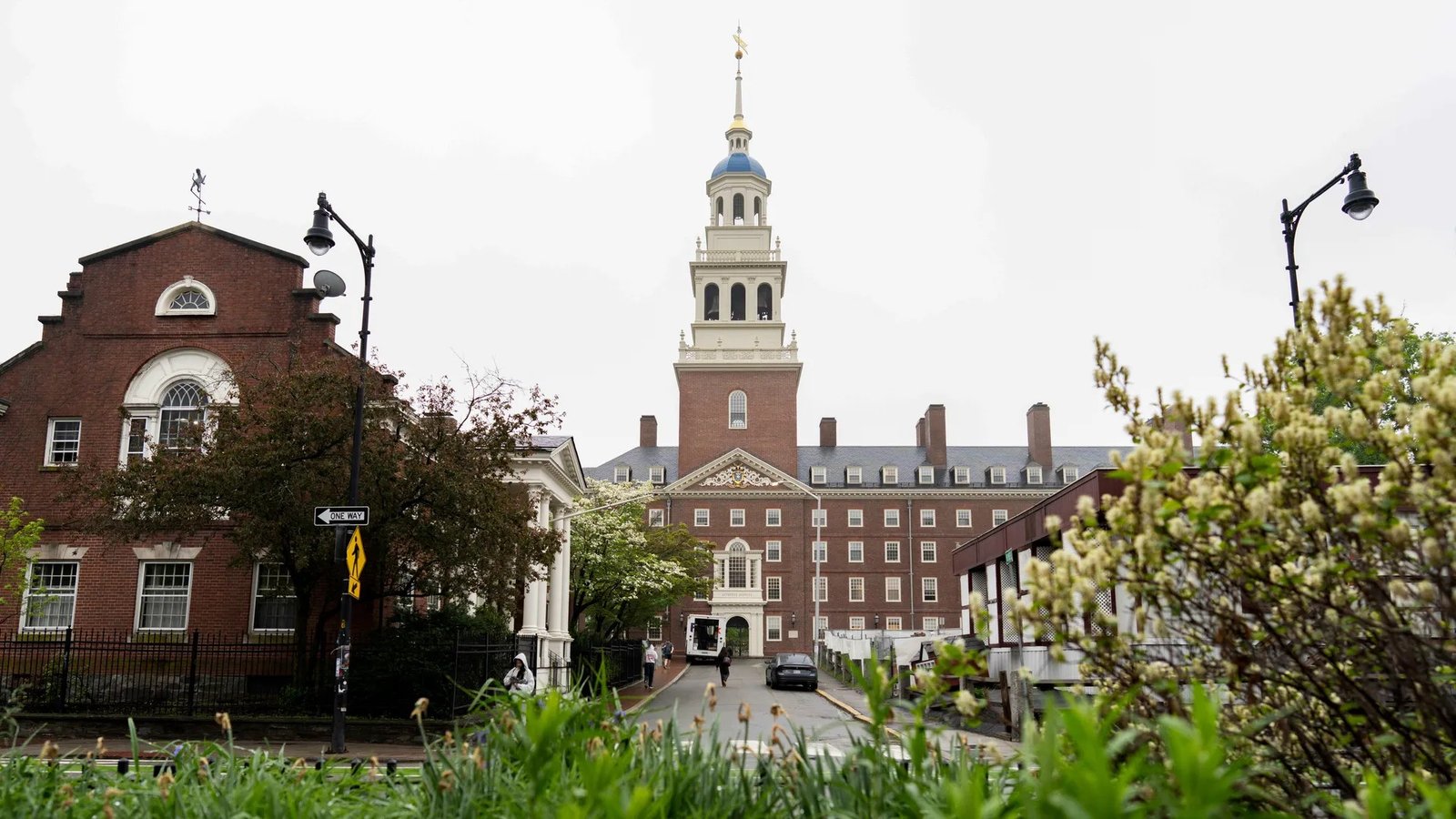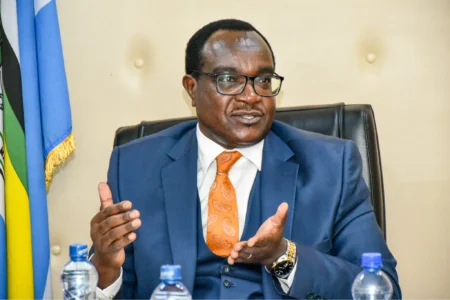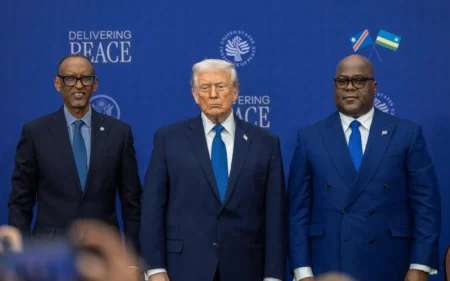CAMBRIDGE, Massachusetts — Harvard University filed a lawsuit on Friday seeking to overturn the Trump administration’s decision to revoke its ability to enroll international students, a move the university alleges is based on its purported tolerance of “anti-American, pro-terrorist agitators” on campus.
The lawsuit was filed a day after the Department of Homeland Security (DHS), at the direction of Secretary Kristi Noem, revoked Harvard’s certification to enroll foreign students under the F-1 visa program.
DHS’s action bars Harvard from admitting new international students and mandates that current foreign students either transfer to other institutions or risk losing their legal status in the United States.
This ban directly affects approximately 7,000 students currently holding visas and studying at Harvard.
“With the stroke of a pen, the government has sought to erase a quarter of Harvard’s student body, international students who contribute significantly to the University and its mission,” stated the lawsuit filed in U.S. District Court in Massachusetts.
The lawsuit further emphasized the critical nature of Harvard’s certification: “Harvard’s certification is essential for each of Harvard’s thousands of international students to lawfully remain in this country while they complete coursework, obtain degrees, and continue critical research.”
Harvard’s legal action alleges that the revocation is a “blatant violation of the First Amendment” and the Due Process Clause of the U.S. Constitution. The university contends that the revocation is “the latest act by the government in clear retaliation for Harvard exercising its First Amendment rights to reject the government’s demands to control Harvard’s governance, curriculum, and the ‘ideology’ of its faculty and students.”
DHS, in its Thursday announcement, stated that it revoked Harvard’s Student and Exchange Visitor Program (SEVP) certification because the Ivy League school’s leadership “has created an unsafe campus environment by permitting anti-American, pro-terrorist agitators to harass and physically assault individuals, including many Jewish students, and otherwise obstruct its once-venerable learning environment.”
Harvard’s suit noted the Trump administration’s action came days before graduation.
“Without its international students, Harvard is not Harvard,” the complaint says.
“We condemn this unlawful and unwarranted action,” Harvard President Alan Garber said in a letter.
According to the complaint, South Dakota Governor Kristi Noem initiated the conflict by sending a letter on April 16 to Harvard’s International Office. In the letter, Noem demanded that the university submit detailed information about every student visa holder across its 13 schools within ten business days, accusing the institution of failing “to condemn anti-semitism.”
Harvard complied with the request, submitting the requested data on April 30 and supplementing it with additional details on May 14, the lawsuit claims.
However, the university states that the federal response was both sudden and vague. “Yet, on May 22, 2025, DHS deemed Harvard’s responses ‘insufficient’ — without explaining why or citing any regulation with which Harvard failed to comply — and revoked Harvard’s SEVP certification ‘effective immediately,’” the complaint reads.
Harvard contends that DHS’s action jeopardizes the academic futures of thousands of international students and lacks a legal basis, as no specific shortcomings or regulatory violations were identified.
The suit notes that in recent weeks and months, the Trump administration’s Task Force to Combat Anti-Semitism has conditioned the continued issuance of “numerous federal benefits” to Harvard, including billions of dollars on grants and other funding, “on accepting sweeping changes to Harvard’s governance, admissions, hiring, and academic programs.”
“When, on April 14, 2025, Harvard refused to accede to these demands, the government’s retribution was swift,” the suit says.
“Hours later, the government froze more than $2.2 billion in federal funding critical to the support of ongoing cutting-edge research at Harvard.”







